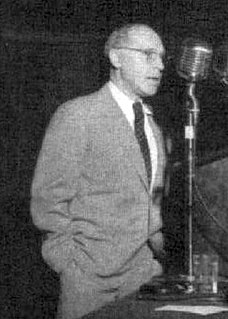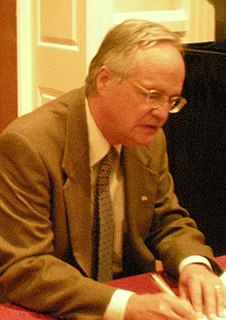A Quote by Amartya Sen
Human life depends not only on income but also on social opportunities, [for example] what the state does for educating.
Quote Topics
Related Quotes
Muhammad was the exemplar ruler, exemplar father, exemplar warrior, and once you have a family, you have contentions, you have problems, human problems, and it's the human order. He set the example and model for Muslims for all the different endeavors. He is not only the example of the spiritual life, but he is also an example for our life in this world.
The aim of life is no more to control the mind, but to develop it harmoniously; not to achieve salvation here after, but to make the best use of it here below; and not to realise truth, beauty and good only in contemplation, but also in the actual experience of daily life; social progress depends not upon the ennoblement of the few but on the enrichment of democracy; universal brotherhood can be achieved only when there is an equality of opportunity - of opportunity in the social, political and individual life.
We also need to find a language capable of defending government as an element of the common good, one that does not define itself as both a punishing and corporate state. This is not merely a matter of redefining sovereignty, but also rethinking what is distinctive about the social state, social responsibility, and the common good.
As science is more and more subject to grave misuse as well as to use for human benefit it has also become the scientist's responsibility to become aware of the social relations and applications of his subject, and to exert his influence in such a direction as will result in the best applications of the findings in his own and related fields. Thus he must help in educating the public, in the broad sense, and this means first educating himself, not only in science but in regard to the great issues confronting mankind today.
[W]hich category of crimes does the State pursue and punish most intensely? [T]hose against private citizens or those against itself? The gravest crimes in the State's lexicon are almost invariably not invasions of private person or property, but dangers to its own contentment, for example, treason, desertion of a soldier to the enemy, failure to register for the draft, subversion and subversive conspiracy, assassination of rulers and such economic crimes against the State as counterfeiting its money or evasion of its income tax.
The average human being spends three years of life going to the toilet, though the average human being with no physical toilet to go to probably does his or her best to spend less. It is a human behavior that is as revealing as any other about human nature, but only if it can be released from the social straitjacket of nicety.
I think the other side of this is in this balance between the social state and the punishing state, remember, the social state has been decimated. And the question becomes, how is finance capital, how does the 1 percent now resort to governing? And they govern basically through a form of lawlessness and what I call the punishing state, in which we've had a punishment creep, and now it moves from the prison to almost every institution in society, from airports to schools to social services.
The only beneficiaries of income taxation are the politicians, for it not only gives them the means by which they can increase their emoluments, but it also enables them to improve their importance. The have-nots who support the politicians in the demand for income taxation do so only because they hate the haves; . . . the sum of all the arguments for income taxation comes to political ambition and the sin of covetousness.
Human social life, I suggest, is the magma that erupts and builds up, so to speak, at the fault lines where natural human capacities meet and grind against and over natural human limitations…. This meeting of powers and limitations produces a creative, dynamic tension and energy that generates and fuels the making of human social life and social structures…. It is real human persons living through the tensions of natural existential contradictions who construct patterned social meanings, interactions, institutions, and structures.








































